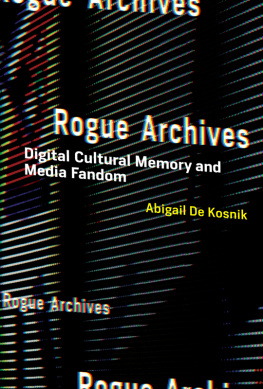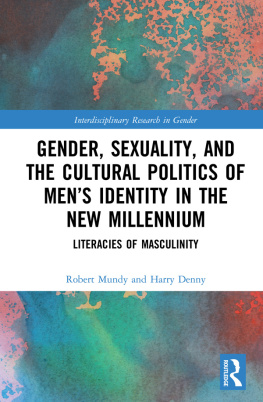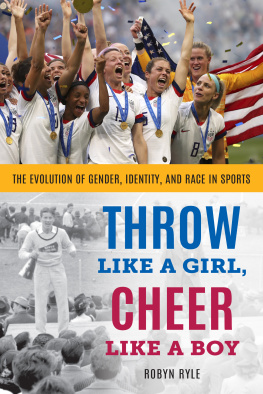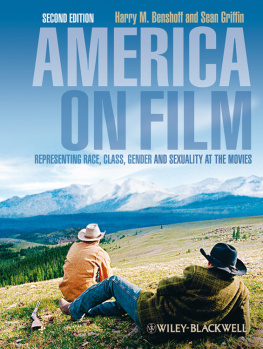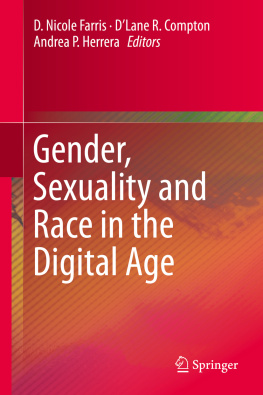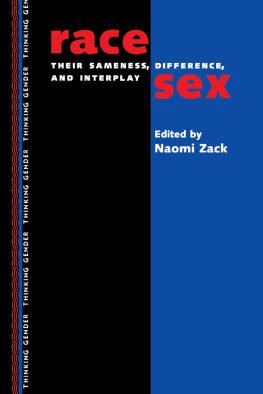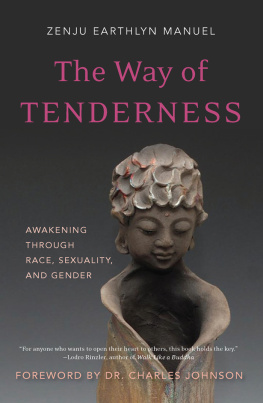Abigail De Kosnik - #Identity: Hashtagging Race, Gender, Sexuality, and Nation
Here you can read online Abigail De Kosnik - #Identity: Hashtagging Race, Gender, Sexuality, and Nation full text of the book (entire story) in english for free. Download pdf and epub, get meaning, cover and reviews about this ebook. publisher: University of Michigan Press, genre: Politics. Description of the work, (preface) as well as reviews are available. Best literature library LitArk.com created for fans of good reading and offers a wide selection of genres:
Romance novel
Science fiction
Adventure
Detective
Science
History
Home and family
Prose
Art
Politics
Computer
Non-fiction
Religion
Business
Children
Humor
Choose a favorite category and find really read worthwhile books. Enjoy immersion in the world of imagination, feel the emotions of the characters or learn something new for yourself, make an fascinating discovery.

- Book:#Identity: Hashtagging Race, Gender, Sexuality, and Nation
- Author:
- Publisher:University of Michigan Press
- Genre:
- Rating:5 / 5
- Favourites:Add to favourites
- Your mark:
- 100
- 1
- 2
- 3
- 4
- 5
#Identity: Hashtagging Race, Gender, Sexuality, and Nation: summary, description and annotation
We offer to read an annotation, description, summary or preface (depends on what the author of the book "#Identity: Hashtagging Race, Gender, Sexuality, and Nation" wrote himself). If you haven't found the necessary information about the book — write in the comments, we will try to find it.
#Identity: Hashtagging Race, Gender, Sexuality, and Nation — read online for free the complete book (whole text) full work
Below is the text of the book, divided by pages. System saving the place of the last page read, allows you to conveniently read the book "#Identity: Hashtagging Race, Gender, Sexuality, and Nation" online for free, without having to search again every time where you left off. Put a bookmark, and you can go to the page where you finished reading at any time.
Font size:
Interval:
Bookmark:
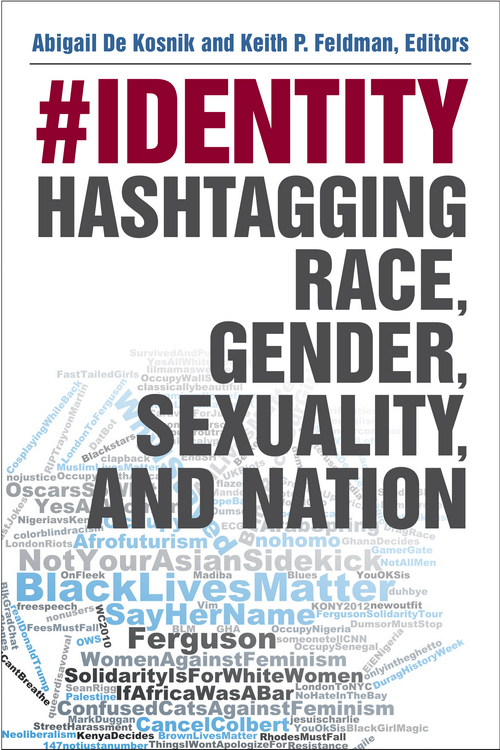
Abigail De Kosnik and Keith P. Feldman, Editors
University of Michigan Press Ann Arbor
Copyright 2019 by Abigail De Kosnik and Keith P. Feldman
All rights reserved
This book may not be reproduced, in whole or in part, including illustrations, in any form (beyond that copying permitted by Sections 107 and 108 of the U.S. Copyright Law and except by reviewers for the public press), without written permission from the publisher.
Published in the United States of America by the
University of Michigan Press
Manufactured in the United States of America
A CIP catalog record for this book is available from the British Library.
Library of Congress Cataloging-in-Publication data has been applied for.
ISBN: 978-0-472-07415-0 (Hardcover : alk paper)
ISBN: 978-0-482-05415-2 (Paper : alk paper)
ISBN: 978-0-472-12527-2 (ebook)
ISBN: 978-0-472-90109-8 (ebook Open Access)
This title is freely available in an open access edition with generous support from the Library of the University of California, Berkeley.
Abigail De Kosnik and Keith P. Feldman
Abigail De Kosnik
Malika Imhotep
Paige Johnson
Aaminah Norris and Nalya Rodriguez
Grace Gipson
Lyndsey Ogle
Julia Havard
Jos Ramn Lizrraga and Arturo Cortz
Rene Pastel
Kyle Booten
Abigail De Kosnik
Bonnie Ruberg
Neha Kumar
Reginold A. Royston and Krystal Strong
Naveena Karusala, Trevor Perrier, and Neha Kumar
Kimberly McNair
Centering questions of race, gender, sexuality, and nation in this book has been as much a reflection of the topics of scholarly inquiry as it is an intentional way of coproducing knowledge across axes of power and difference. #identity reflects several years of collaboration and community-building among the faculty, postdoctoral fellows, and doctoral students who make the Color of New Media working group what it is. The book is one outcome of a shared desire to create the scholarship we want to see in the world and an orientation toward collaboration and co-mentorship that we consider foundational to interdisciplinary work. We want to thank all of the students, faculty, and staff who have made the Color of New Media working group their own over the years.
UC Berkeleys Center for Race and Gender, especially Evelyn Nakano Glenn, Leti Volpp, Alisa Bierria, and Pamela Matsuoka, and the Center for New Media, particularly Greg Niemeyer, Nicholas de Monchaux, and Lara Wolfe, have generously provided necessary institutional support for this project. We are grateful to the Berkeley Research Impact Initiative at the Library of the University of California, Berkeley for supporting the production of an open access version of the book. Nic Chang, Monica Khachatrian, and Lida Zeitlin Wu demonstrated consummate professionalism and care in formatting our chapters and preparing the final manuscript, and we thank them from the bottom of our hearts for their time, dedication, and labor. Rachel Nishan at Twin Oaks Indexing was a dream to work with. The team at the University of Michigan Press has been generous and supportive throughout the long gestation of this book. Susan Cronin fielded countless questions from us and helped our manuscript enter the production process as gracefully as possible, and Mary Hashman was an outstanding production editor. Mary Francis saw possibilities in this project in its earliest glimmers and has guided it into the world with patience, enthusiasm, and many excellent ideas. We owe Mary a million thanks for her crucial role in making manifest our dream of a collaborative original publication. (In case anyone reading this is wondering how and why a UC Berkeley working groups project ended up at the University of Michigan Press, the answer is that Mary first expressed interest in #identity while she was an editor at University of California Pressand her initial input was so crucial to this undertaking that we decided that the book should follow her to her new professional home!)
Finally, to our family members and friendsall those who have helped to give this book life by sustaining and nurturing the people whose names are printed on its pagesthank you, thank you, thank you. This book is the product not only of work but of love.
Abigail De Kosnik and Keith P. Feldman
In August 2017 the Bay Area ensemble Campo Santo performed Ethos de Masquerade, an original theater and dance work about the HIV/AIDS crisis and the Black Lives Matter movement, at the A.C.T. Strand Theater in San Francisco. Before the performance began, assistant director Ashley Smiley led the audience through some breathing exercises as a means of helping us achieve the proper orientation of mind, body, and spirit necessary to receive the experience that was about to transpire. She encouraged us to inhale, to dwell for a moment on the hashtags youve been forced to remember, and then to breathe them out and release them. This book is about the hashtags that weve been forced to remember. Its pages contain our meditations on those hashtags, our coming to terms with them, our processing their contexts and meanings, and our releasing them into the worldnot as a means of forgetting or erasing them but as a way of sharing the understandings weve come to about what these tags mean, individually and together, and how they have served as labels, metadata, organizing ideas, and rallying cries for the last several years of our lives.
#identity was collectively produced by a working group called the Color of New Media, which is based at the University of California, Berkeley, and is sponsored by the Center for Race and Gender, with additional support from the Berkeley Center for New Media (BCNM). In September 2013 Abigail De Kosnik, a Berkeley faculty member, and Paige Johnson, then a PhD student, decided to launch the Color of New Media as a response to a question that they had been asking each other for some time: Is the color of new media studies white? Both women of color, De Kosnik and Johnson wanted to create a space on the campus in which nonwhite, non-male, non-straight people as well as white, male, or straight people who were seriously interested in difference and inclusion could gather and discuss the multifaceted ways that minorities are, and have been, actively engaging with, shaping, and expanding new media, inclusive of desktop computing, the blogosphere, mobile culture, social media, UGC (user-generated content), IPTV (Internet Protocol television), gaming, and other emergent or transitional media forms. One of the two dozen or so people to attend our first meeting was Keith Feldman, a Berkeley faculty member in the Department of Ethnic Studies, and soon after, De Kosnik asked Feldman to sign on as the cofaculty organizer of the Color of New Media, to which he agreed. Today the Color of New Media meets monthly in the BCNM Commons (the centers seminar room), and between five and fifteen people attend each meeting. Anyone who attends one meeting, or emails one of the organizers to express interest in the group, is considered a member and is added to the groups mailing list. As of this writing, our mailing list currently has seventy-six members, with the following demographics: 21 percent African American, 32 percent Asian American, 10 percent Latinx, 37 percent white, 70 percent female, 27 percent male, 3 percent nonbinary gender, and 11 percent LGBTQ. In contrast, the demographics of UC Berkeleys graduate student population are 5 percent African American, 23 percent Asian American, 5 percent Latinx, and 50 percent white (with the remainder reported as Other/Unknown [Graduate Division 20162017]), and 46 percent female (Office of the Vice Chancellor for Equity and Inclusion at UC Berkeley 2013).
Next pageFont size:
Interval:
Bookmark:
Similar books «#Identity: Hashtagging Race, Gender, Sexuality, and Nation»
Look at similar books to #Identity: Hashtagging Race, Gender, Sexuality, and Nation. We have selected literature similar in name and meaning in the hope of providing readers with more options to find new, interesting, not yet read works.
Discussion, reviews of the book #Identity: Hashtagging Race, Gender, Sexuality, and Nation and just readers' own opinions. Leave your comments, write what you think about the work, its meaning or the main characters. Specify what exactly you liked and what you didn't like, and why you think so.

